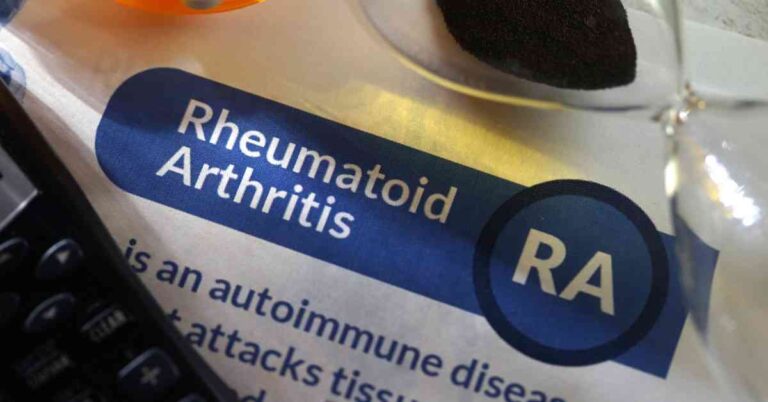Rheumatoid Arthritis Injections: An Overview
Rheumatoid arthritis (RA) is an autoimmune disorder which causes inflammation, pain, and joint damage. RA is a progressive condition that can lead to joint deformities and disabilities if left untreated. Millions of people are diagnosed with RA each year. Rheumatoid Arthritis Injections are one popular treatment option that is available.
The exact cause of RA is unknown however, there are many risk factors that have been identified that may increase a person’s risk of developing the condition. These risk factors include:
- Age: RA can occur at any age, but the risk increases as people get older, with the majority of cases occurring in people over the age of 40.
- Gender: Women are three times more likely to develop RA than men.
- Family history: People who have a family history of RA are at an increased risk of developing the condition.
- Smoking: Smoking is a main risk factor for RA and has been linked to an increased risk of developing the condition, as well as a more severe form of the disease.
- Obesity: Obesity has been linked to a risk of developing RA, particularly in women.
While various treatments are available for RA, injections have become a popular option for many patients. This article will discuss what rheumatoid arthritis injections are, who they are intended for, how they work, what the side effects are, and how to ask your doctor about them.
What are Rheumatoid Arthritis Medication Injections?

Rheumatoid arthritis injections are a type of medication used to treat the symptoms of RA. They are usually given as a shot into the muscle or under the skin. They work by reducing inflammation and pain in the joints. There are several types of RA injections, including:
Biologic: Biologic injections, such as tumor necrosis factor (TNF) inhibitors, target specific proteins in the body that cause inflammation.
Non-biologic: Non-biologic injections, such as corticosteroids, reduce inflammation at the injection site.
Who are Rheumatoid Arthritis Injections Intended for?
Rheumatoid arthritis injections are intended for people diagnosed with RA and experiencing symptoms such as pain, swelling, and stiffness in the joints. Injections are usually only recommended for patients who have not responded well to other treatments. They may also be recommended for patients with severe RA affecting their daily activities. Your doctor will try other treatments first: nonsteroidal anti-inflammatory drugs (NSAIDs) or disease-modifying antirheumatic drugs (DMARDs).
How do Rheumatoid Arthritis Injections Work?
Rheumatoid arthritis injections work by reducing inflammation in the joints. By reducing inflammation, RA injections can help to relieve pain, swelling, and stiffness in the joints.
What are the Side Effects of Rheumatoid Arthritis Injections?
Like all medications, rheumatoid arthritis injections can have side effects. The most common side effects of biologic injections include the following:
- Infection
- Allergic reactions
- Increased risk of cancer
- Increased risk of blood clots
Non-biologic injections, such as corticosteroids, can cause side effects such as:
- Increased appetite
- Weight gain
- Mood changes
- Increased risk of infections
How to Ask Your Doctor About Rheumatoid Arthritis Injections
If you are considering rheumatoid arthritis injections, you must talk to your doctor. Your doctor can discuss the benefits and risks of injections and help you determine if they are right for you. When talking to your doctor, be sure to ask about the following:
- The type of injection you will receive
- How often will the injections be given
- The potential side effects of the injections
- Whether any other treatments may be more appropriate for you
Conclusion
Rheumatoid arthritis injections are a type of medication used to treat the symptoms of RA. They work by reducing inflammation in the joints and can help to relieve pain, swelling, and stiffness. However, like all medications, rheumatoid arthritis injections can have side effects. Talk to your doctor about injections’ potential benefits and risks and determine if they are right for you.
Find more stories in the blog
References:
- National Institutes of Health (NIH): This is the primary source of medical research in the United States and is a trusted source of information on all topics related to health and medicine. You can find information about rheumatoid arthritis injections and other treatments for RA on their website at https://www.nih.gov/health-information/rheumatoid-arthritis.
- American College of Rheumatology (ACR): The ACR is a professional medical society focusing on rheumatology and related medical specialties. You can find information about RA treatments, including injections, on their website at https://www.rheumatology.org/.
- Arthritis Foundation: The Arthritis Foundation is a non-profit organization that provides information and support to people with arthritis and related conditions. You can find information about RA injections and other treatments on their website at https://www.arthritis.org/.
- PubMed: This is a database of over 29 million citations for biomedical literature maintained by the National Library of Medicine. You can find articles and studies about rheumatoid arthritis injections by searching for “rheumatoid arthritis injections” on their website at https://www.ncbi.nlm.nih.gov/pubmed/.




